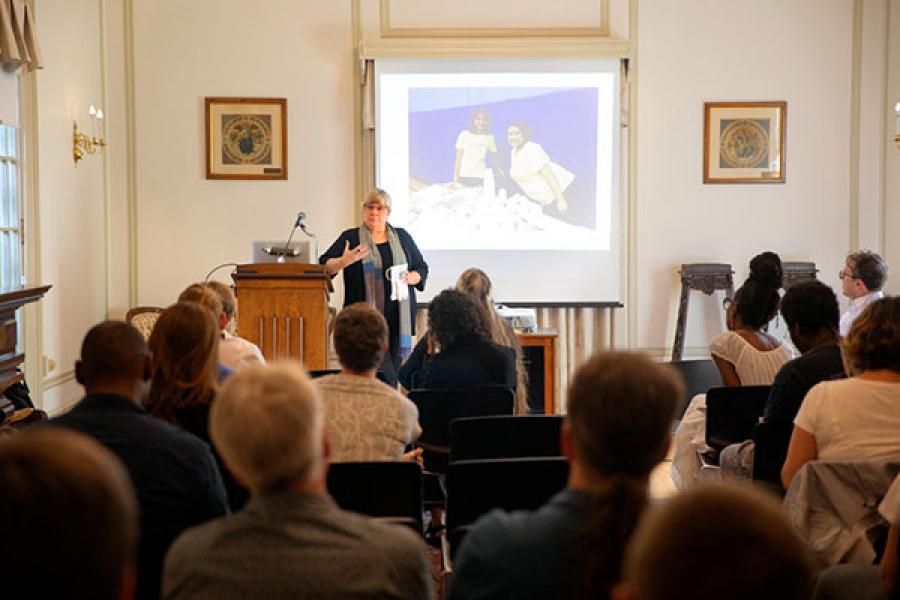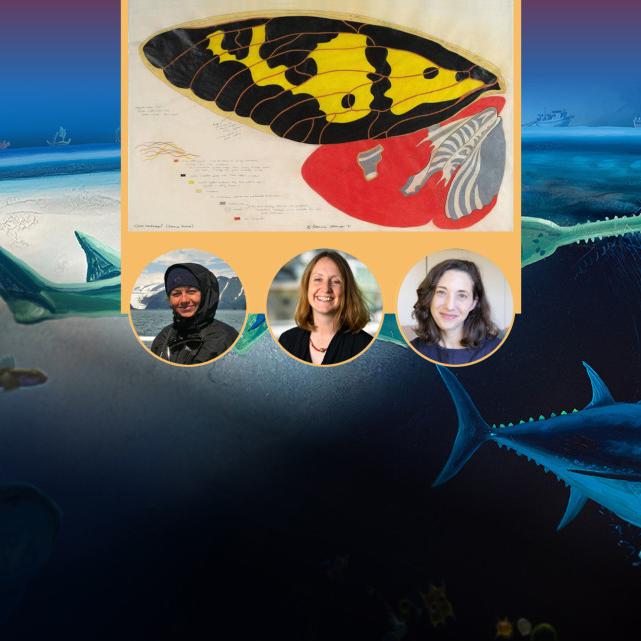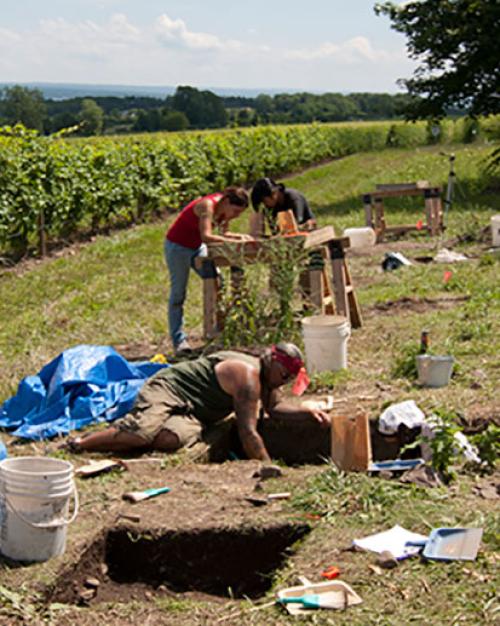Poetry and performance – as well as more traditional presentations – comprised the first Rural Humanities Showcase, held Sept. 6 in the A.D. White House. The nine projects represented Cornell faculty engagement, teaching, and research around “rural humanities,” which uses the tools of the humanities to both address the rural-urban divide and the realities of rural America, particularly in Central-Western New York.
In addition to supporting new projects, the four-year Andrew W. Mellon Foundation-funded Rural Humanities initiative in the College of Arts and Sciences also aims to enhance the already existing projects at Cornell, such as those presented at the Sept. 6 showcase, and form them into a visible program
The Rural Humanities is “an experiment in expanding the reach of the humanities at Cornell,” Paul Fleming, co-director of the initiative, professor of German Studies and comparative literature as well as the Taylor Family Director of the Society for the Humanities, said in his introduction. “We want to encourage public and engaged projects, work which ranges from public-facing scholarship to directly collaborating with community partners in the co-creation of research and teaching agendas,” such as the History Center, local libraries, community colleges, and indigenous communities.
The initiative offers a spring seminar and a summer practicum for graduate students and advanced undergraduates as well as support for faculty outreach in generating new scholarship, noted Rural Humanities co-director Gerard Aching, professor of Africana and Romance studies.
Kurt Jordan, associate professor of anthropology and Director of the Cornell Institute of Archaeology and Materials Studies, described his decades-long archaeology work on Haudenosaunee sites on which he collaborates with Indigenous communities and institutions. His methods have been developed to respect those communities. “Native people have been victimized by traditional forms of western scholarship rather extensively over time,” he said, adding that his work is an explicit attempt to try and change the social and political dynamics of archaeology to address these colonialist tendencies.
Sturt Manning, Goldwin Smith Professor of Classical Archaeology and director of the Cornell Tree Ring Laboratory, is also transforming our understanding of the history of Indigenous peoples through his dendrochronology research. Using tree-ring and radiocarbon analysis, he has raised questions about the timing and nature of early interactions between indigenous people and Europeans in North America. The Dendochronology Lab, particularly Senior Research Associate Carol Griggs, has also worked with sites across New York State to determine the age and origin of wooden structures.
Historian Scott Peters, professor of development sociology in the College of Agriculture and Life Sciences, presented his work on land-grant universities, cooperative extension, and democracy. He said he views land-grant universities like Cornell as development agencies, “because they have institutionalized connections and relationships with communities and businesses in work aimed at civic and cultural as well as economic change."
Participants were then treated to a dramatic reading of a scene from “The Next Storm: A Community-Based Play about the Impact of Climate Change on the Finger Lakes.” The project, a collaboration with Civic Ensemble, is led by Sara Warner, Stephen H. Weiss Junior Fellow and associate professor of performing and media arts and Godfrey Simmons, Jr., senior lecturer, both in the Department of Performing and Media Arts; and Toby Ault, associate professor of earth and atmospheric sciences in the College of Engineering. The actors included Cornell students and Ithaca community members.
Community narratives were also Jon McKenzie’s focus. “Civic storytelling is the sharing of stories, both intimate and strategic, between different stakeholders to address pressing issues within communities,” explained McKenzie, professor of the practice in the Department of English. He described projects his students have done to engage local communities and his work on developing a “civic story kit,” using multimedia approaches to tell “real stories about real issues for real audiences.” McKenzie is partnering with Gretchen Rymarchyk, extension associate for the New York State Rural Schools Program, and deputy executive director for the Rural Schools Association of New York State, to form collaborations with rural schools.
Debra Castillo; credit Jason Koski, Cornell Brand Communications
The Latinx community is the focus for Debra Castillo, Stephen H. Weiss Presidential Fellow and Emerson Hinchliff Professor of Hispanic Studies in the Department of Comparative Literature and director of the Latina/o Studies Program. For more than ten years she has been teaching Cultures and Communities, a course designed to bring students together with Latinx communities in our region. The students engage in “community projects that are responding to needs and issues that community members and community organizations identify,” said Castillo.
As director of the Cornell Farmworker Program, Mary Jo Dudley works closely with farmworkers and their families to improve their living and working conditions. The 53-year-old Farmworker Program also “seeks recognition for farm workers contributions to society and their acceptance and full participation in local communities,” said Dudley. She discussed how Cornell faculty and students collaborate with farmworkers from Mexico, Guatemala, Central America and the Caribbean to address social, linguistic and geographic challenges associated with living in rural areas.
Poet Lyrae Van Clief- Stefanon, associate professor of English, shared poetry by artists from Appalachia, where her current work is centered. The poems themselves, she said, give “a better perspective than if I tell you, hey, if you're treating somebody who's Southern, or somebody who is rural, like they’re an idiot because they have an approach that is a completely different approach than the approach that you're used to, then that's a problem.” Poetry, she said, “has the potential to make a breakthrough in a way that other things maybe don't.”
The final presentation was about a community college collaboration headed by Caroline Levine, Cornell’s David and Kathleen Ryan Professor of Humanities and chair of English, and by English professors Anndrea Mathers, Tompkins Cortland Community College, and Christian Sisack, Onondaga Community College. The project will connect Cornell graduate students with local community colleges, providing mentoring opportunities for the graduate students and for the community college faculty as well as opportunities for intellectual engagement.
The event concluded with the Society for the Humanities’ annual welcome reception.








